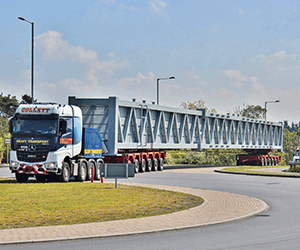The Construction Supply Chain Payment Charter was launched on Tuesday at a low-key event with just nine firms signed up from the 30-strong Construction Leadership Council, which formulated the voluntary code.
Signing the charter pledges a firm to 30 days payment from January 2018 on public and private sector work, and 60 days with immediate effect. With it comes an ambition for zero retentions.
Already several subcontractors have slammed the charter for failing to tackle the big cash crunch expected this year and warn it will go the same way as other abortive efforts to improve the industry’s payment record.
Now members of The Specialist Engineering Contractors’ Group have called for radical measures to ensure the payment charter has an impact.
These include Government writing to the top 100 clients urging them to get on board, and making signing up to the charter a requirement for public sector work.
SEC Group, which has been heavily involved in the development of the charter, believes that the priority must be to ensure its implementation.
Rudi Klein, SEC Group chief executive, said: “Given the fact that we have had many other initiatives aimed at curbing payment abuse, enforcing compliance with this charter must be paramount.”
“We do not want this charter to become, yet another, wasted initiative.
“The measures we are calling for are essential if the charter is to have impact.”
SEC Group enforcement proposals
- Signing up to the charter should be a pre-qualifying requirement for all public works contracts.
- Public sector bodies should introduce a yellow card/red card system for those failing to comply. A yellow card would afford time to comply, a red card would disqualify a firm from public sector work for two years.
- Business Secretary Vince Cable should write to the top 100 private clients inviting them to sign the charter and enforce it along the supply chain.
- Appointed a charter ombudsman to drive implementation and challenge non-compliance.
The construction supply chain charter – in full
Fair and transparent payment practices are essential to the achievement of successful integrated working on construction projects.
This Charter applies to all parties to construction contracts with the aim of helping to create a more collaborative culture and ensure a strong, resilient and sustainable supply chain.
This Charter builds on and complements existing legislation and policy, namely the Housing Grants, Construction & Regeneration Act 1996 (as amended); the Late Payment of Commercial Debts Regulations 2013; the Fair Payment Charter; Cabinet Office Procurement Information Note 2/2010; and the Prompt Payment Code.
By becoming a signatory to this Charter, an organisation agrees to apply the fair payment commitments in its dealings with its supply chain, to be monitored for the purposes of compliance by reporting against a set of agreed key performance indicators (KPIs), and to consider the performance of its supply chain against the agreed KPIs when awarding contracts.
FAIR PAYMENT COMMITMENTS
We agree that on all new construction contracts from 1 January 2015 we will meet the fair payment commitments set out below.
1) We will make correct full payment as and when due for all work properly carried out, or products supplied, in accordance with the contract. We will ensure any withholding of payment due to defects or non-delivery is proportionate, and clearly, specifically and demonstrably justified in line with the arrangements set out in the contract.
2) We will not deliberately delay or unreasonably withhold payment.
3) For all new contracts we will ensure that payments are made to our supply chain not more than 60 calendar days from the end of the Calendar month in which the work is carried out or products are supplied. From June 2015 we will ensure that payments are made to our supply chain not more than 45 calendar days from the end of the calendar month. From January 2018 that will decrease to not more than 30 days.
4) Public authorities are already required to pay within 30 calendar days . On central Government contracts, payment will be made to Tier 1 within 14 days, to Tier 2 within 19 days and to Tier 3 within 23 days of the due date, which will be 7 days after the common assessment or valuation date established by the client in the Tier 1 contract .
5) We will either not withhold cash retention or ensure that any arrangements for retention with our supply chain are no more onerous than those implemented by the client in the Tier 1 contract. Our ambition is to move to zero retentions by 2025.
6) We will issue any ‘pay less’ notices at the earliest opportunity and no later than 7 days prior to the final date for payment .
7) We will have processes in place to enable the effects of contract variations to be agreed promptly and fairly and payments for such variations to be included in the payment immediately following the completion of the varied works.
8) We will make payments electronically unless agreed otherwise.
9) We will use Project Bank Accounts on central Government contracts unless there are compelling reasons not to do so and on other contracts where appropriate.
10)Where Supply Chain Finance schemes allowing members of the supply chain to secure earlier payment are offered, we will not impose fees or costs for receiving payment within the terms set out in the contract.
11)We will adopt a transparent, honest, and collaborative approach when resolving differences and disputes.





















 MPU 300_250px.gif)
































